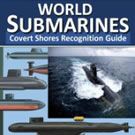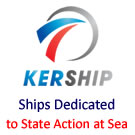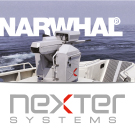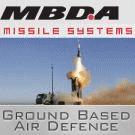Nearly 650 industry and government leaders in electronic warfare gathered for the 47th Annual Collaborative Electronic Warfare Symposium at Naval Base Ventura County, Point Mugu, California, March 13-15.

John Dailey, president of the Mugu chapter of the Association of Old Crows, tries his hand at virtual reality flight during the 47th Annual Collaborative Electronic Warfare Symposium at Naval Base Ventura County on March 15 in Point Mugu, California. (U.S. Navy photo by Kimberly Brown)
The annual symposium, hosted by Naval Air Warfare Center Weapons Division under a co-sponsorship agreement with the Association of Old Crows, focuses on collaboration in the world of electronic warfare. Briefs are held at the classified level, allowing attendees to have more in-depth discussions than they could have in a regular meeting environment.
“This is a great opportunity to see beyond the day-to-day and observe and experience the larger focus of national EW efforts,” said John Dailey, president of the Mugu Chapter of the AOC. “As EW professionals, we become so absorbed in the many stimulating tasks at hand that it’s easy to forget the many other technical challenges and opportunities.”
Key leaders from the Navy, Air Force, and the Office of the Secretary of Defense joined academic and industry leaders at Naval Base Ventura County Point Mugu, California, the home of NAWCWD’s electronic warfare capabilities.
“This is where the first naval aviation electronic warfare was born in the 1950s,” said Ron Gewerth, NAWCWD computer scientist and this year’s conference chairperson.
This year’s event featured keynote addresses by Rear Adm. Mark Darrah, Program Executive Officer for Unmanned Aviation and Strike Weapons; Dr. Steve Rogers, senior scientist for autonomy, Air Force Research Laboratory at Wright-Patterson Air Force Base; and Brig. Gen. Edward Sauley III, deputy director of operations for Joint Electromagnetic Spectrum Operations at U.S. Strategic Command, Offutt Air Force Base, Nebraska. Several focuses discussion sessions allowed participants a more interactive format to explore better ways to collaborate in the field of electronic warfare.
“We see a superb interchange between national actors, local engineers and their technical leadership on major EW matters of the day,” Dailey said.
Attendees also toured electronic warfare laboratories, and static displays, with the U.S. Navy’s last EA-6B Prowler and an EA-18G Growler, which replaced the Prowler as the Navy’s premier electronic attack aircraft. For many attendees, getting an up-close look at the labs aircraft made real the theory they work with on a day-to-day basis.










